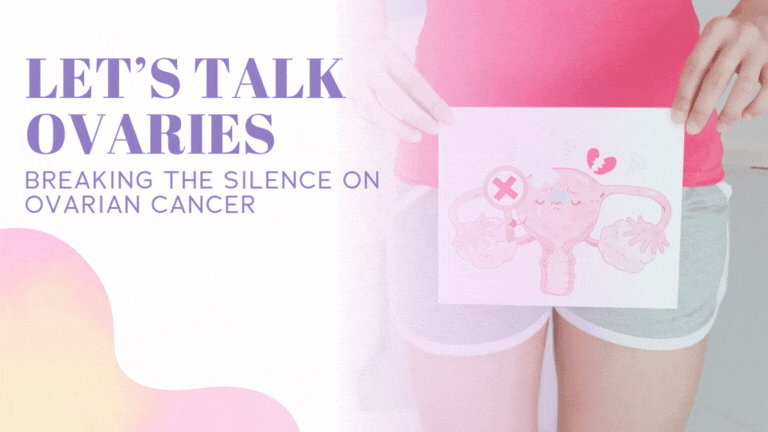Let’s Talk Ovaries: Breaking the Silence on Ovarian Cancer
May 8 is World Ovarian Cancer Day, and if you're thinking, "I don’t know much about ovarian cancer,"—you’re not alone. That’s exactly why we’re talking about it.
Ovarian cancer is one of the deadliest cancers affecting women. It’s often called the “silent killer” because its early symptoms are so easy to dismiss—think bloating, fatigue, and subtle pelvic discomfort. Things many of us feel on a regular basis.
And yet, those small signs can be the body’s quiet cry for help.
The Symptoms Are Whispering—Are We Listening?
The most common early symptoms of ovarian cancer include:
Persistent bloating
Pelvic or abdominal pain
Difficulty eating or feeling full quickly
Frequent or urgent urination
Unexplained fatigue
Here’s the problem: these symptoms aren’t dramatic. They’re often brushed off as “just PMS,” “just stress,” or “just getting older.” But when they linger, especially if they’re new or unusual for you, it’s time to pause and pay attention.
Your body is your lifelong partner. Learning to trust your intuition when something feels off can be lifesaving. Talk to you doctor and OBGYN about any of these symptoms and if you must, get a second opinion.
Why Is Ovarian Cancer So Hard to Catch Early?
Unlike cervical cancer (which has a clear screening test known as the Pap Smear Test), ovarian cancer doesn’t have a reliable early detection tool. That means most cases are diagnosed at later stages, when treatment is more difficult.
Right now, diagnosis often depends on a combination of:
Patient-reported symptoms
Pelvic exams
Imaging like ultrasounds or CT scans
Blood tests like CA-125
But none of these are standard screenings and they’re usually done after symptoms arise. That’s why awareness is key. The more we understand about what ovarian cancer looks and feels like, the better chance we have at catching it sooner.
Key Stats
According to the World Ovarian Cancer Coalition:
324,000 women go undiagnosed every year
Ovarian cancer is the 8th most common cancer in women in the world
207,000 women die globally from ovarian cancer
Ovarian cancer is often diagnosed in the latest stage, making it the most deadly form of cancer for women.
Comfort, When and Where It’s Needed Most
We know that pelvic discomfort, pressure, and irritation can be part of ovarian cancer symptoms—or side effects of treatment. That’s where VPod comes in.
Our mess-free, cooling vulva relief system offers gentle support during moments of medical stress or recovery. Whether you're managing bloating, sensitivity, or post-treatment tenderness, VPod is here to provide comfort without compromise.
Because every woman deserves to feel cared for—not just during wellness, but during worry too.

